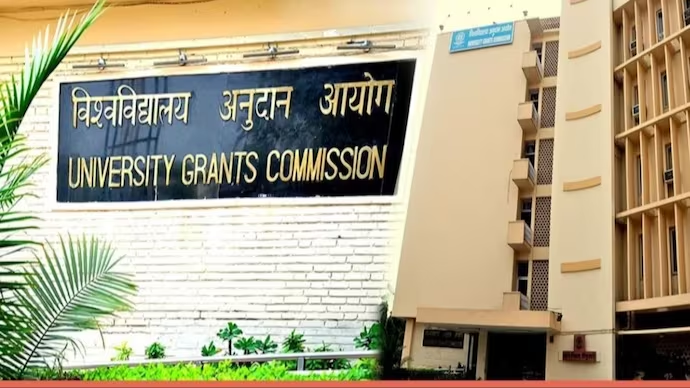The University Grants Commission (UGC) has introduced a set of draft regulations aimed at transforming higher education in India. These proposed guidelines emphasize flexibility, inclusivity, and modernization. Key reforms include biannual admissions, multiple entry and exit points, discipline-agnostic eligibility, and flexible attendance requirements. Additionally, the draft regulations propose a radical shift in teacher recruitment by eliminating score-based shortlisting, thereby focusing on merit and inclusivity.
UGC Chairperson M. Jagadesh Kumar has asserted that these changes are designed to break disciplinary rigidity, grant autonomy to higher education institutions (HEIs), and offer students greater control over their academic journeys. The new regulations prioritize contributions to knowledge and community over rigid qualifications, aiming to make Indian education more competitive and adaptable to global standards.
Despite these forward-looking reforms, Opposition has primarily emerged from southern states where non-NDA parties are in power. Karnataka has taken the lead, hosting a conclave on February 5 where higher education ministers from seven states—including all southern states except Andhra Pradesh—united to oppose the draft guidelines. Representatives from Jammu and Kashmir, Himachal Pradesh, and Jharkhand also joined the protest. Kerala has gone a step further, and proposed a National Education Convention.
Kerala’s Chief Minister Pinarayi Vijayan and Higher Education Minister R. Bindu have voiced strong resistance, arguing that the draft guidelines infringe upon the federal structure. They contend that matters such as the appointment of Vice Chancellors and faculty, as well as the administration of public universities, should remain under state control. Kerala has even threatened legal action if the central government does not reconsider these proposals.
However, many academics disagree with this political opposition, arguing that the UGC 2025 draft is one of the most significant and promising overhauls in decades. The Indian higher education system has long suffered from outdated curricula, bureaucratic hurdles, and a lack of accountability. This reform package, they argue, should have been introduced as early as 2000 to address these chronic issues.

A former principal of a reputed city college (Hyderabad) notes that Indian universities are lagging behind global standards, with institutions often lacking the necessary infrastructure, trained faculty, and research orientation. The new regulations, while demanding, could bridge this gap by encouraging qualitative improvements across the board. Critics of the opposition argue that state governments resisting these changes are doing a disservice to students. Instead of focusing on political posturing, they should prioritize student interests and the long-term benefits of an upgraded education system.
She further argues that education has always been the backbone of national development. Countries that have successfully modernized their education systems have witnessed corresponding economic and technological advancements. India must recognize that its outdated higher education model is hindering its global competitiveness. If institutions do not adapt, students will continue to seek education abroad, leading to a significant brain drain.

The reluctance to embrace change is reminiscent of past crises. For instance, India’s dependence on food aid through the U.S. PL-480 program in the 1960s forced the country to mechanize agriculture, leading to the Green Revolution. Similarly, the liberalization of the 1990s was necessitated by an economic crisis but ultimately transformed India into a global economic player. The opposition to educational reform today raises the question: must India always wait for a crisis before embracing necessary transformation?
The current debate should not be about political affiliations but about preparing India’s youth for the future. The very leaders opposing these reforms often send their own children abroad for better education. If they truly cared about the middle-class students of India, they would work towards ensuring that similar world-class education is available domestically.
Rather than obstructing progress, state governments should engage in meaningful discussions with the Centre to iron out concerns and ensure smooth implementation. Constructive debate should lead to actionable decisions, not perpetual gridlock. As constitutional expert Granville Austin noted, the Indian Constitution is a product of consensus. If leaders genuinely believe in the principle of “unity in diversity,” they should support the creation of globally competitive universities in India.
The Opposition’s criticism, therefore, appears more politically motivated than substantive. Using federalism as a pretext to resist much-needed reforms does a disservice to students, institutions, and the nation at large. The focus should be on improving educational standards, fostering research excellence, and ensuring that India’s youth have access to the best possible learning opportunities. In an increasingly globalized world, resisting change is not just shortsighted—it is detrimental to national progress.







